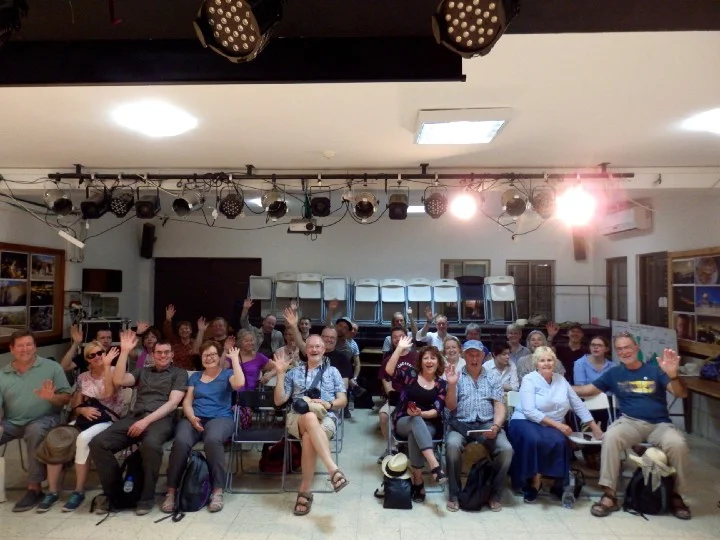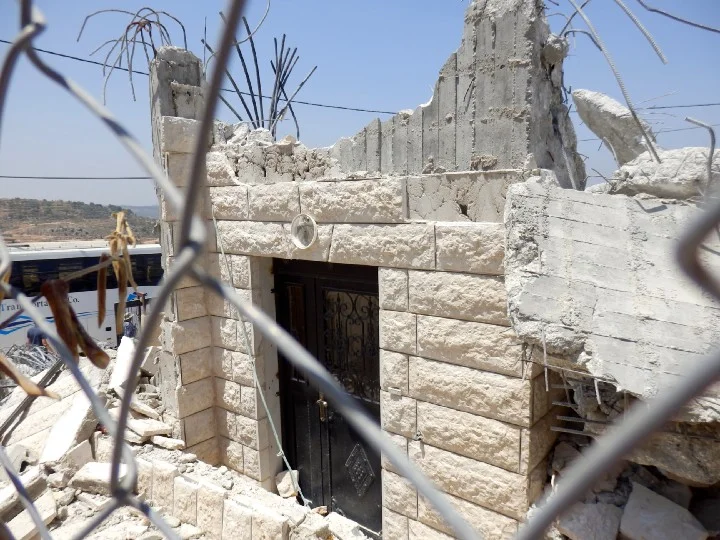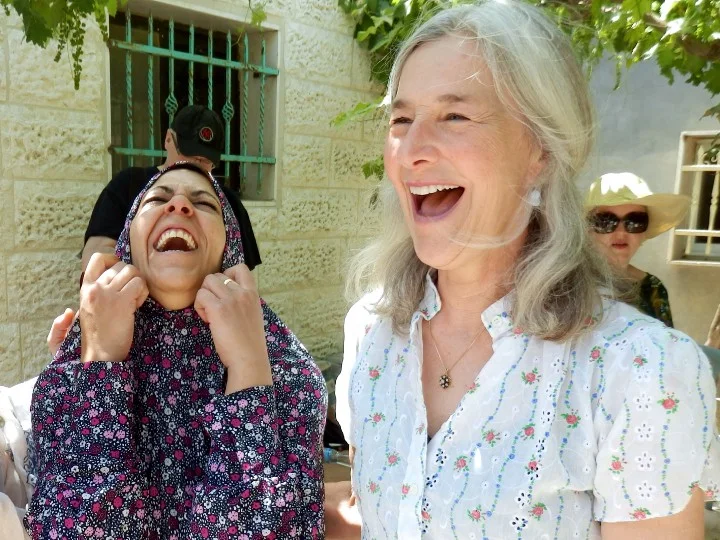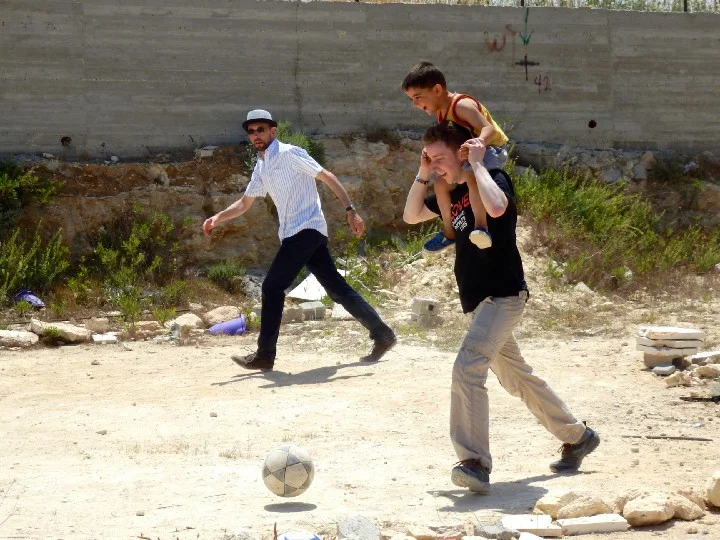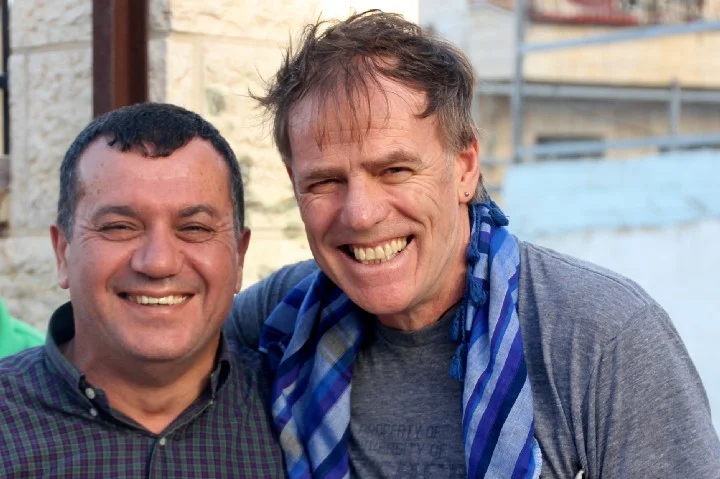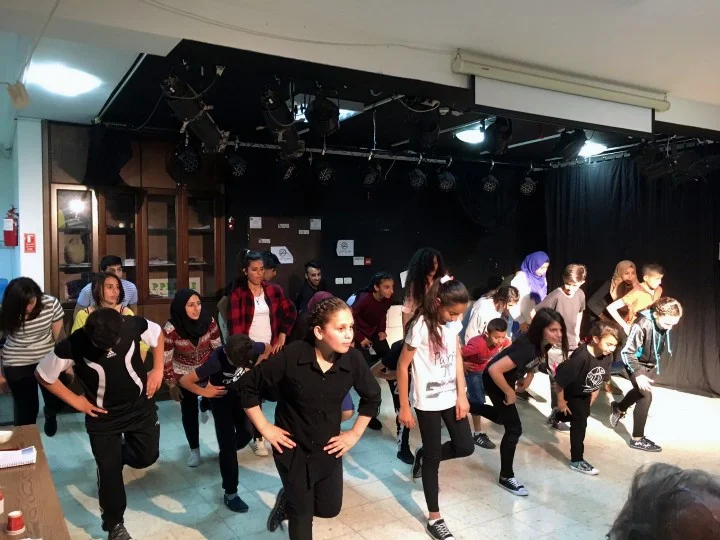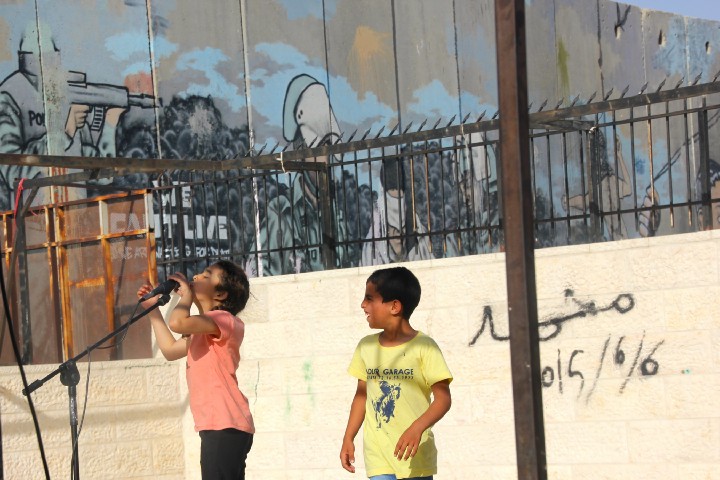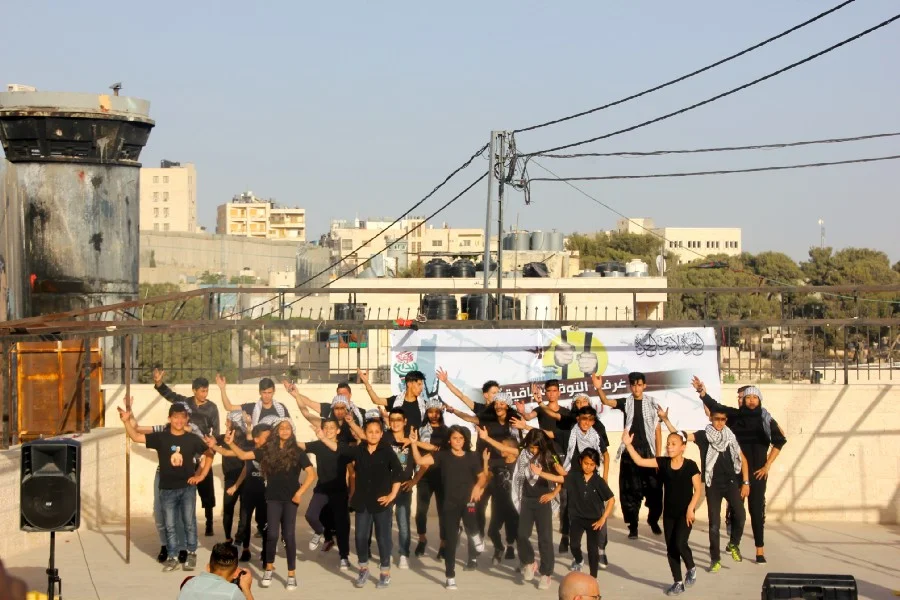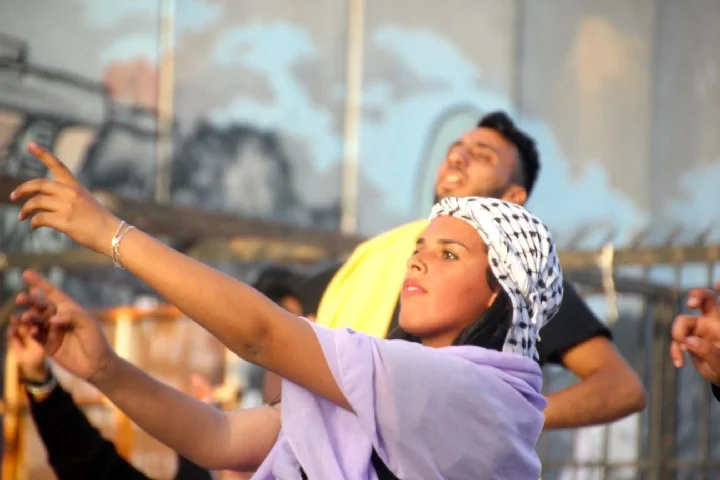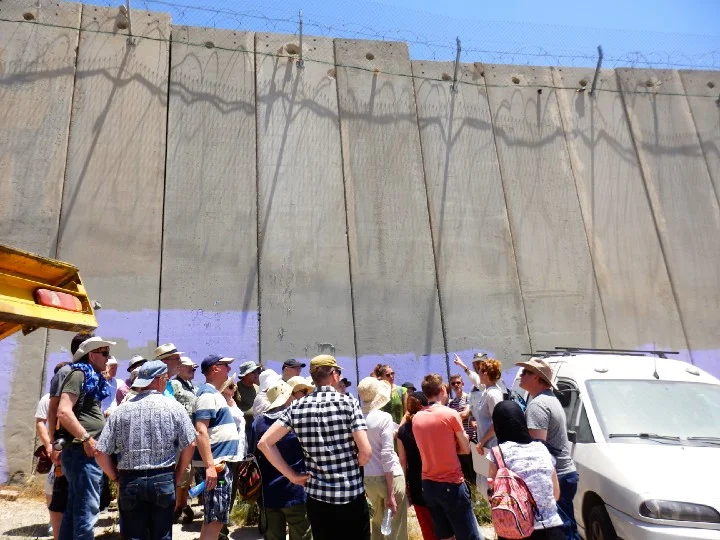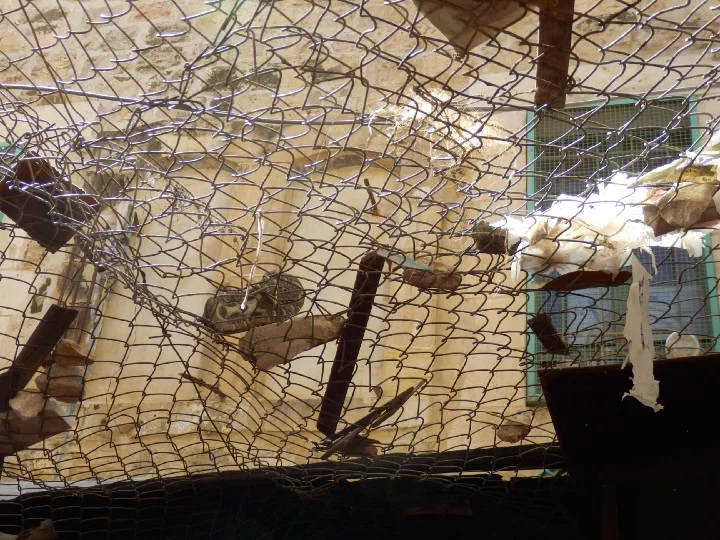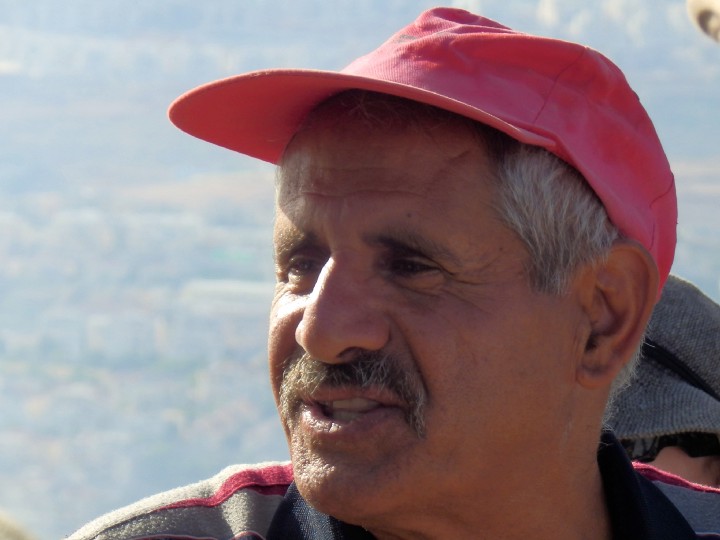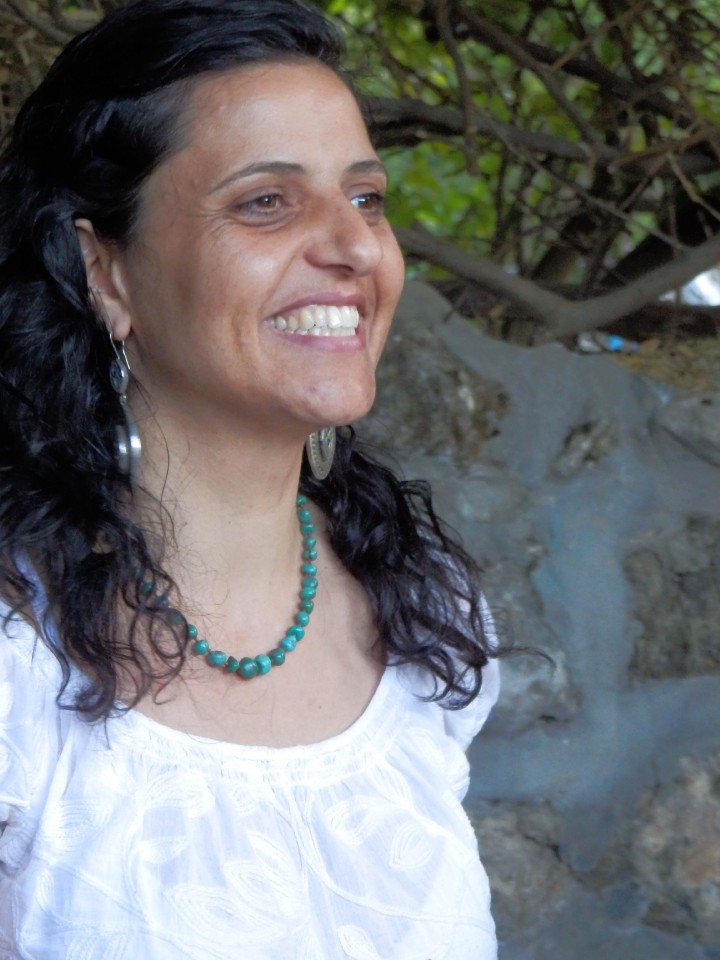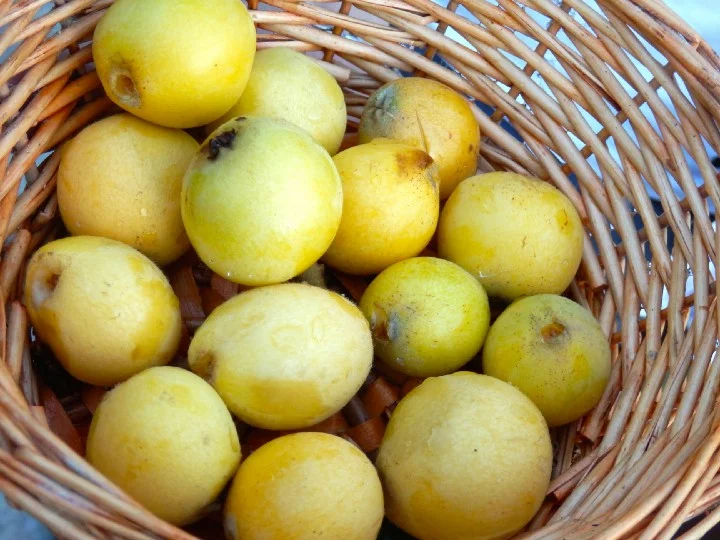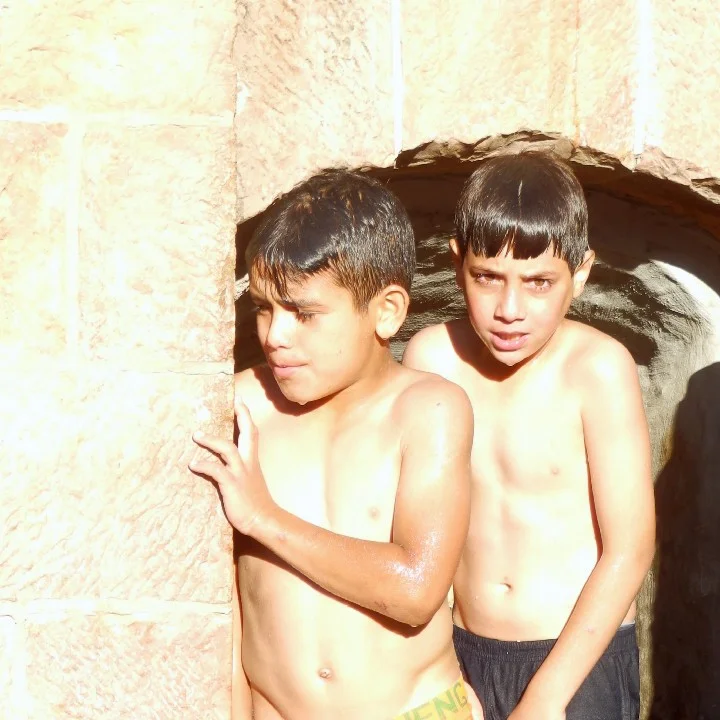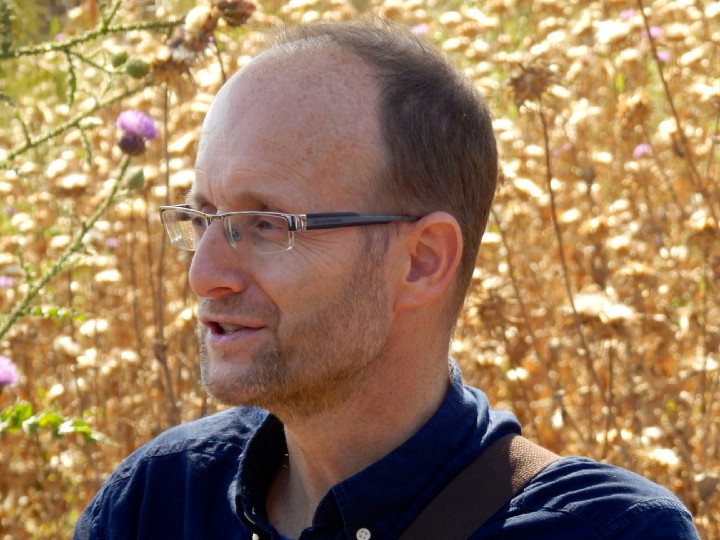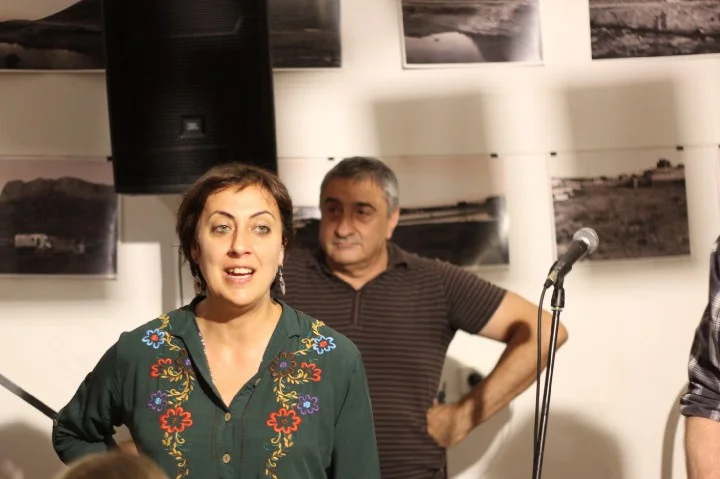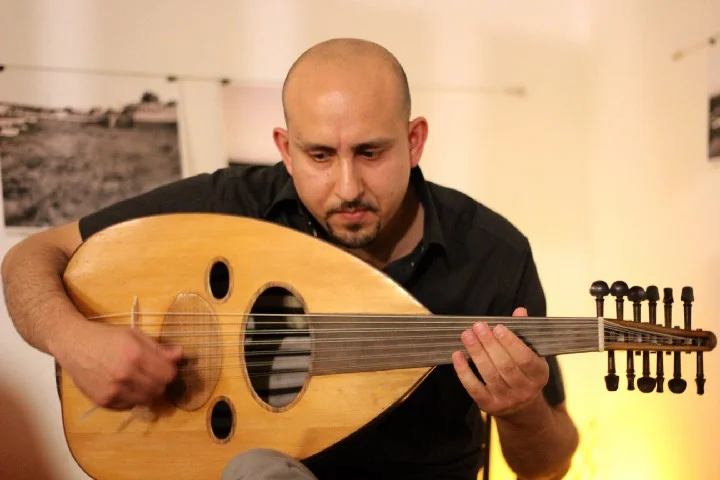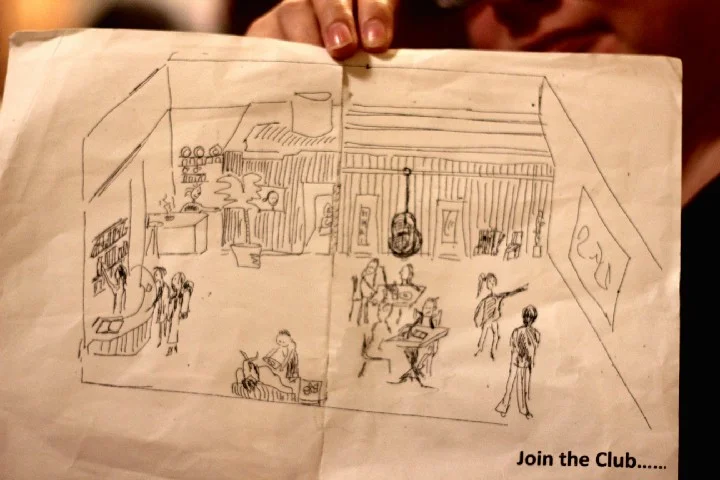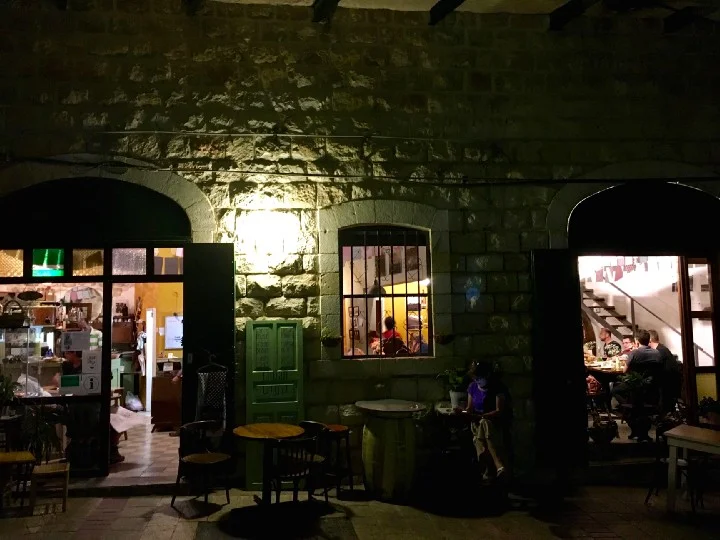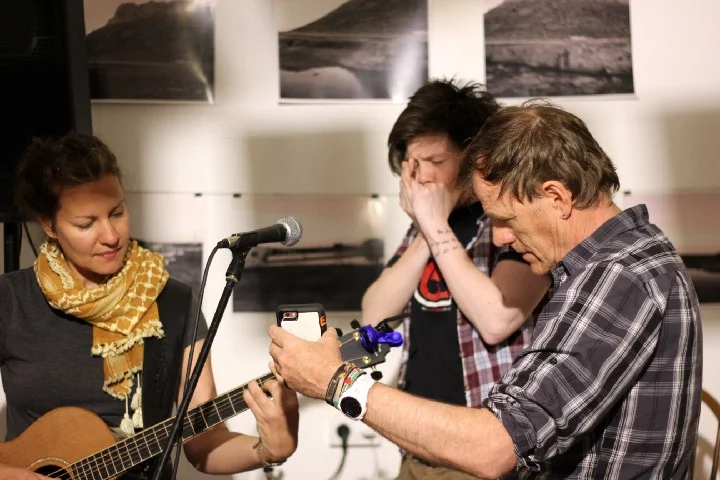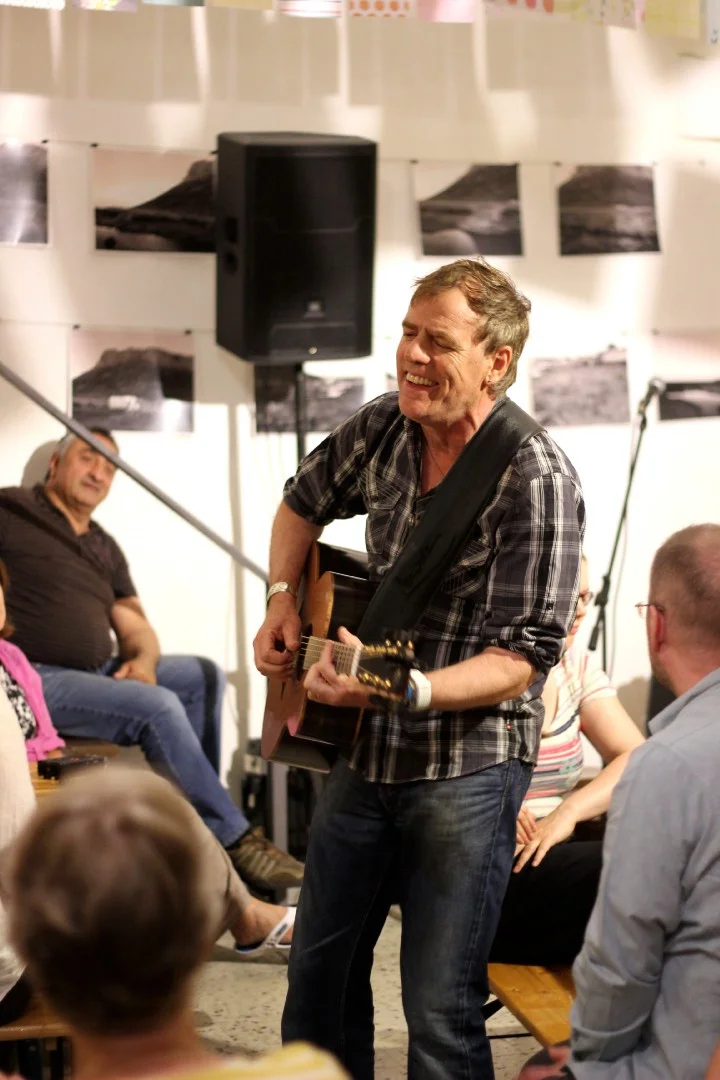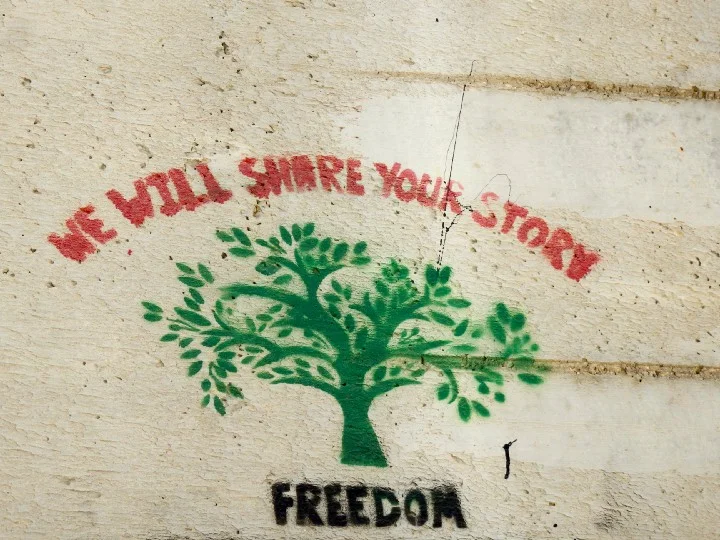A Gift of Extraordinary Kindness: A Return to Palestine
Red and blue crayon.
There are so many ways to begin a discussion on Palestine, on the trip we’ve just returned from. Ten days, 31 volunteers, 3 musicians and two (well, one and a half) tour leaders. Ten days so filled with events, people, sights, sounds, they seemed to stretch into months. Thirty-five volunteers from 6 different countries.
It seems there would be endless starting points, but as I sit writing my eyes keep falling to a single piece of paper that lays off to the side bearing red and blue crayon.
One of the 10 days — it doesn’t matter which — we visited a small village in the West Bank. We were there to visit a home that had been rebuilt just 3 weeks earlier by Amos Trust and another volunteer group. The home was rebuilt after being demolished — an abhorrent harassment method brutally utilised by the Israeli Military who often give no warning of arrival nor time for the family to remove their possessions. In fact on this day as we walk in we pass a pile of concrete rubble and twisted rebar just 100 yards away from our destination, the door still defiantly upright and intact. We will learn it was the home of a relative — their aunt — and that it occurred just a few days earlier, the day we flew in to Palestine.
Yet as we arrive we are met with a barrage of smiles. Slices of cake. Clasped hands and gap-toothed laughter attached to the small art that is the half dozen little faces running in circles. The smell of cardamom and clove announce the cups of arabic coffee before they’re even passed around, the air as intoxicating as their greeting and as impossible to resist. We lean into the arms of their welcome.
Later, after we’ve heard their stories, we scatter across the yard, sweaty games of football, frisbee and general, shrieking horseplay breaking out in the dust.
Crayons are produced from one backpack, an empty notebook dug out of an another as our brains replay what they’ve just shared.
How, when the bulldozer came that day the women — the mothers, the wives — pleaded with the soldiers to, at the very least, stop laughing.
How, when the father refused to move the car from the bulldozer’s path to the home that took them 10 years to build, the soldiers fired sound bombs and tear gas.
How the child you’re sitting down to draw with lived through this terror.
With play as your language you gently place a small hand on the page, red crayon tracing an outline. Grinning at the result, and in a gift of the ordinary sweetness of children, that little hand places yours on the same page, copies your example, blue crayon circling your fingers. Your heart quietly breaks in yet another piece when you see he’s traced your hand over his, as he proudly picks up that paper from the ground and points to your bag.
In a ten day span, in the midst of unimaginable injustice and staggering difficulties, this human gesture of kindness and community would replicate itself over and over.
In only the second Volunteer Trip offered by Let Yourself Trust, the primary event of the trip was a concert to be held on an outdoor stage in the Aida refugee camp, directly next to the separation wall and in conjunction with our partners based there, the Alrowwad Cultural & Arts Society. The remainder of the schedule included visits in and around Bethlehem, Hebron, Jerusalem, Nazareth, Arroub, Sebastia, Battir and the sea of Galilee to meet and hear various speakers and families and to gain an ‘on the ground’ perspective.
Abed is a name most Martyn Joseph supporters will have heard, as he is the founder and director of Alrowwad, the very first project Let Yourself chose to partner. Our first full day in Palestine 35 pairs of feet climb up Alrowwad’s steps and we are greeted by Abed, a visible light in the Aida camp.
He and Martyn race to see who can hug each other the fastest, and we are settled into a brief discussion on how Alrowwad came to be, and the difficulties that surround it, before being given a sneak peek presentation by the dancers on their next day’s performance.
In his ever insightful wisdom there is a moment where Abed mentions, “Peace? It’s a lot of small pieces.” and there’s a fleeting wonder if his words will again find their way into song.
The day of the big event arrives — a sea of plastic chairs line the outdoor stage with the youngest concert fans already climbing over them in giggly anticipation. LYT Artist Ambassadors Grace Petrie and Antje Duvekot join Martyn for a quick sound check and little feet race around the stage in curiosity.
As the camp’s residents take their seats, a parade of women clad in brightly coloured headscarves hold up a banner representing their unfairly imprisoned husbands and fathers in quiet grace.
A young girl takes the stage — an Alrowwad performer and the evening’s arabic compare — and the music begins as Grace sings her opening line. As Antje, Alrowwad and Martyn next perform, it is a loud and magnificent chaos — the hopelessness of a concrete wall jammed into the beauty of the resistant sounds and sights beside it. It’s a glorious rebellion that isn’t and the moment stretches, nameless as it is magical, down the shadows of the evening and into the street beyond.
We cannot believe it is only the third day.
The remaining days are filled with people, bus rides, stories, Middle Eastern heat and seismic shifts of emotion.
There’s two tours of Jerusalem — one to visit the holy sites, the other led by an Israeli advocate of ICAHD (the Israeli Committee Against House Demolitions), Ruth, who is a head rush of knowledge and infectious emotion. We learn of the new weapons of war — restricted water, non-existent trash collection, sidewalks (pavement), freedom of movement, suppression of language.
Amidst cries of ‘yalla, yalla’ (let’s go!) we walk the streets of the ancient city of Hebron, learning along the way about areas A, B and C, of the Unoccupied Property Law, of the matrix of administrative, bureaucratic and physical control that empower the deliberate confusion of the Occupation. We take in the watchtowers, the mesh cages overhead filled with rocks, the enforced vacancy of the main street, the echoless shops, their silence hinting of the narrative that was.
As we move I see pencils scratch on paper, our group’s heads bent over the urgent need to remember, notes to pass on to family and friends and future thoughts.
We climb the path to the Tent of Nations, a rich plot of 100 acres of land owned by the Nasser family for over 100 years, and one in constant battle for survival. Embodying positivity, Tent of Nations runs a children’s camp, women’s projects, an organic farm and a sense of self-sustaining community focused on building bridges of hope amidst conflict and occupation. With land deeds dating back to the Ottoman Empire in hand proving ownership, the Nasser family has been battling the Israeli government for over 25 years in their attempts to claim the area as ‘state land’. With a constant presence attempting to erase the possibility of any future tense, Daher Nasser seems impervious to the pressure. “We are not allowed water, so we make tanks. We are not allowed electricity, so we have solar panels.”
Daher’s home is a cave, one of 7 on his property — his resolution to the fact that he’s not allowed to build on his own land without fear of demolishment. Head’s whirring, we walk the quiet miles of the day’s last breath back to the bus with Daher’s buoyant farewell at the gate echoing around us — ‘see you next year!’
In a village called Battir we meet Vivien Sansour and shift our perspective quite literally back to earth.
Vivien is an anthropological agriculturist who has created the Palestine Heirloom Seed Library as a way of preserving Palestinian farming heritage. With encroaching settlements and restricted water supplies, Vivien is taking back control and fighting for continued autonomy by collecting seeds from ageing farmers for species that are rapidly dying out. A World Heritage Site, Vivien brings us to tour her oasis of terraced farm land on the outskirts of Battir.
As we make our way back to the bus we pass an outdoor bathhouse turned swimming hole and the universal shrieks of little boys splashing each other fill our ears.
Amidst the convergence of the afternoon call to prayer, slicked hair, glistening smiles and the day’s lesson ringing around us it’s all a bit overwhelming. It seems a constant struggle between past and present and even as we lean back a moment our hands receive the day’s sun from ancient stone. It seems so hard to understand the why and the how.
The next person we meet attempts to answer these very questions.
Jonathan Cook is a British writer and journalist based in Nazareth and he is a tennis match for the brain. As you’re scrambling after the volley of information sent your way he’s already slicing in with the next thought. Jonathan enters us into a dizzying discussion about the very important difference between the definition of citizenship versus nationality in Israel. In the haze of the day it is a contortion for the mind and days later I’m still reviewing my notes on the matter.
We are immediately enchanted with the acquittance of Sally, Jonathan’s wife.
Sally and her business partner Sami run Liwan, a cultural café and social sanctity for Palestinian art and artists located in the Old City and a central community point for locals and visitors alike.
In the evenings our tables are loaded with gorgeous, handmade Palestinian fare — tomatoes sliced with warmth, mint leaves gently mingled, spices sparking senses and sparkling in the air. Still in its infancy, Sally, Sami and co have turned their hand drawn dream into reality and it is a genuine diamond. You can see the sideshows playing on all around you, heads thrown back in laughter, hands gesturing in story telling, an art gallery of human connection.
A small concert at Liwan is planned for our final night, a way to wrap the end of our 10 day journey in song. Sally’s handmade show posters line the entryways of our immaculate guest houses, inviting the local community to attend. The evening arrives and it is a poignant celebration — walls barely containing the mix of new friendships, music, laughter and wine. Grace dedicates a song about the Guardian to Jonathan, Antje pulls two of our volunteers onto stage with her and everyone tries to keep the moment still.
Near the end of the night there is a small disturbance — Liwan has some fundamental neighbours who aren’t thrilled with the café’s presence. Nazareth is in Israel thus policed by Israelis and they spot the situation and come over to regulate. It’s a minuscule example of some of the daily harassment and complexities faced and we are in no danger, but it’s a foreign tension to our group and it pauses the evening, leaving us uncertain how to proceed.
With soldiers and bullies outside, Sally turns to us, undaunted, and shouts, ‘one more song’! And so Martyn leads us, as a group, in one more song.
This is the image I will take home. That I think we will all take home.
There is an expression.. The picture is amazing, but it’s the love of the painter that you remember. Liwan — the café — is magnificent, but it is Sally’s spirit that we will remember.
In his characteristically apt fashion Nive, our steady hand from Amos Trust, tells us it is a Palestinian quality known as ‘sumud’. A steadfastness, a perseverance, despite the oppression, despite the hardships. Despite.
As convoluted, complex and utterly heartbreaking it is to learn of the injustice and struggle for basic human rights Palestine and it’s beautiful people must endure daily, we are humbled by their kindness, motivated by their spirit. The next day we board the plane carrying their stories home, committed to the weight of their memory distributed among international shoulders.
And we start now, with you.
In hope, gratitude and freedom,
Justine Joseph
For additional information:
Special Thanks to:
LYT Artist Ambassadors Antje Duvekot & Grace Petrie
Our Friends and Partners at Amos Trust, Holy Land Trust & Alrowwad
New Friends at Liwan Café

